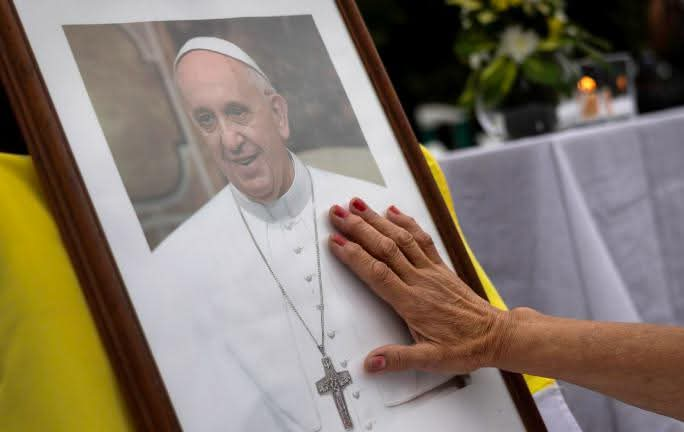CELEBRITY
“Returned to the House of the Father”: Pope Francis Passes Away Amid Ongoing Debate Over His Legacy

Returned to the House of the Father”: Pope Francis Passes Away Amid Ongoing Debate Over His Legacy
Vatican City, April 21, 2025 Pope Francis, the 266th pontiff of the Roman Catholic Church and one of its most transformative and polarizing leaders, has died at the age of 88. The news was announced early this morning by Cardinal Kevin Farrell during a solemn broadcast on Vatican television.
“At 7:35 this morning, the Bishop of Rome, Francis, returned to the house of the Father,” Farrell said, invoking the traditional phrasing used to announce the death of a pope.
Born Jorge Mario Bergoglio in Buenos Aires, Argentina, Pope Francis made history in 2013 as the first pope from the Americas, the first Jesuit to ascend to the papacy, and the first non-European pope in more than a millennium. His election signaled a shift in tone and emphasis for the Catholic Church, away from doctrinal rigidity and toward pastoral care, humility, and a more open engagement with the modern world.
A Papacy Marked by Compassion—and Controversy
From the outset, Francis positioned himself as a pope of the people. Rejecting many of the traditional trappings of papal power, he chose to live in a modest guesthouse rather than the Apostolic Palace and often drove a simple car. His focus was on mercy, dialogue, and the Church’s responsibility to the poor and oppressed.
Francis became a global voice on urgent issues: climate change, economic inequality, migration, and the dangers of nationalism. His 2015 encyclical Laudato Si’ called for environmental stewardship and was widely praised even outside Catholic circles.
Yet, his papacy was not without turbulence. Within the Church, he faced fierce resistance from conservative factions who saw his approach as a departure from long-standing doctrine. His willingness to reconsider the Church’s stance on divorced and remarried Catholics, his openness to LGBTQ+ individuals, and his emphasis on decentralizing authority were seen by some as destabilizing.
Reform and Resistance
Francis attempted numerous internal reforms, including restructuring the Vatican bureaucracy and increasing accountability around clerical sexual abuse—though critics argue progress was slow and uneven. His synods on the Amazon and family life opened discussions once considered off-limits, including optional celibacy for priests and greater roles for women.
To his supporters, these were signs of a Church evolving with the times. To his detractors, they represented confusion and doctrinal dilution.
“He gave hope to many on the peripheries of society and the Church,” said Sister Maria Lopez, a theologian in Mexico City. “But he also stirred deep anxieties among those who feared losing their spiritual compass.”
A Legacy Still Unfolding
As tributes pour in from around the world, so too do debates about what Pope Francis’ legacy will ultimately be. Was he a necessary reformer who modernized the Church and made it more compassionate? Or a disruptive figure who left behind theological uncertainty?
What is certain is that his papacy left an indelible mark—not only on the Roman Catholic Church’s nearly 1.4 billion followers but also on the broader global conversation about faith, justice, and humanity.
The Vatican has announced that funeral plans will follow the traditional nine-day mourning period known as novemdiales. The College of Cardinals will soon gather for a conclave to elect his successor—a decision that could either continue Francis’ vision or mark a return to more traditional leadership.
For now, bells toll in St. Peter’s Square, and candles flicker in quiet cathedrals around the world. The Church mourns, and the world reflects on the man who dared to ask, “Who am I to judge?”—and in doing so, forever changed the papacy.









